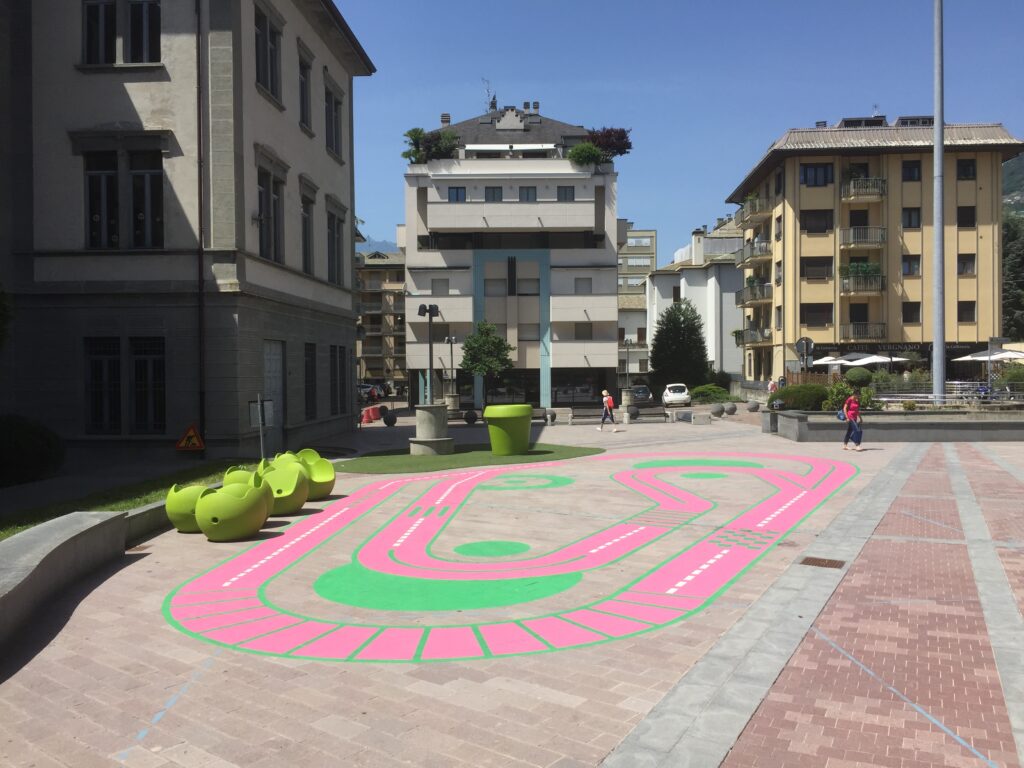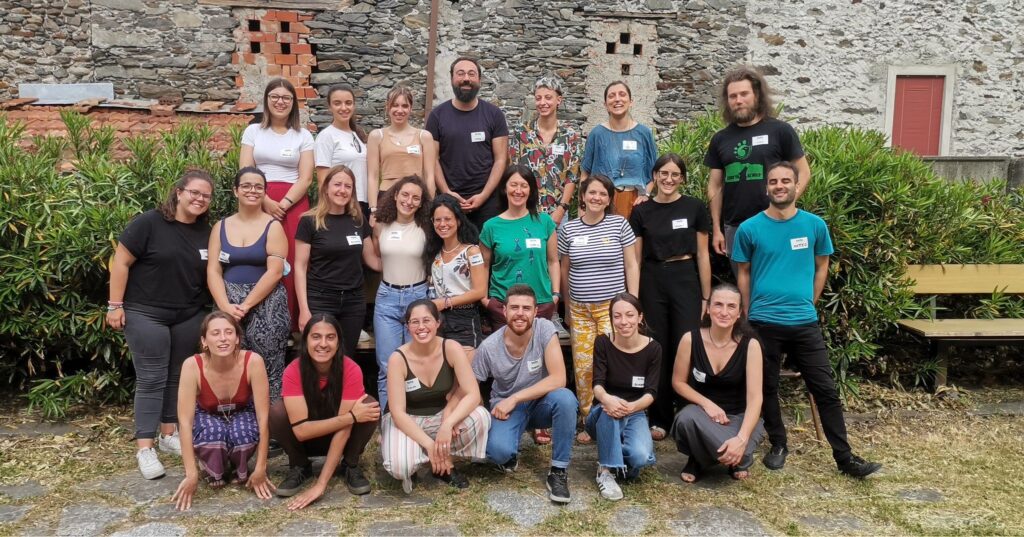Re-designing the city: city (Re)making according to Studio SHIFT
The process of urban development requires a holistic vision for the creation of resilient, inclusive, and sustainable cities. This is the concept that Elena Enrica Giunta, Designer, Project Manager, and founding partner of Studio SHIFT, explores in her recent article “Reimagining the City: City (Re)making,” published in the Pedagogika magazine. She also continues this exploration in another position paper, focusing on the theme of Regenerative Neighbourhoods, written for the Driving Urban Transition network, which will soon be published as a contribution to the DUT Conference 2024.
The international event, titled “Driving Urban Transitions through Joint Action,” aims to explore the theme of urban regeneration and provide a platform for sharing experiences, ideas, and best practices in the field of sustainable urban design. It involves communities, researchers, urban planners, environmental activists, and entrepreneurs in sharing perspectives and innovative solutions to address the urban challenges of the 21st century.
In her articles, Elena Giunta emphasizes the crucial importance of engaging local communities in the urban requalification process through the inclusive approach of CoDesign. According to her perspective, city-making is functional when it involves not only administrators and experts but also ordinary citizens — those who live and experience those spaces firsthand and who carry a variety of needs.
This participatory approach is crucial because it fosters social cohesion while simultaneously creating vital and meaningful public spaces capable of becoming places of encounter and cultural exchange.
With her work, Elena Giunta also explores emerging approaches on the international level, such as tactical urbanism and placemaking (Granata), without forgetting handmade urbanism (De Rosa), which aim at the rapid transformation of urban environments through innovative and participatory interventions. Finally, she emphasizes the importance of inclusivity and equality in the cities of the future, illustrating with practical examples how urban regeneration can become a strategic lever for promoting individual and collective well-being.
In this regard, two case studies implemented by Studio SHIFT are particularly useful to fully understand these concepts in real contexts and demonstrate their validity empirically: the “Family 2.0” project and the “STARGATE in the Alps” one.
Family 2.0

The “Family 2.0” project represents a reinterpretation of traditional street games aimed at creating a child-friendly city through the realization of temporary playgrounds and welcoming public spaces. It is a local interpretation of the recent approaches of tactical urbanism that are gaining ground in major European and Italian cities.
The target audience of the project are children aged 0 to 10, along with their families, who live or visit the city of Sondrio (21,000 inhabitants).
At the heart of the initiative is the desire to find new solutions to educational poverty by improving the overall quality of urban public spaces. To achieve this goal, a set of characters representing “The Family” was developed for children to play with. These characters have been translated into various artifacts, including three visual booklets available in city shops, three graphic installations on a street scale, and a family hub at the headquarters of the Forme Impresa Sociale.
In designing urban graphics, Studio SHIFT has reinterpreted street games to make them more inclusive and fun, adapting them to contemporary aesthetics and use. This allows children to explore and play both individually and in groups, increasing their familiarity with city spaces and attributing them personal meaning.
Stargate in the Alps

The “STARGATE in the Alps” project, in collaboration with Forme Impresa Sociale, together with Cooperativa Cramars, La Capagrossa, Associazione TSD in collaboration with Cooperativa Viso a Viso and funded by the Ministry of Culture (specifically the Directorate General for Contemporary Creativity), instead allowed young people under 35 to learn and experiment in the field, in a rural and alpine context, the effectiveness of CoDesign, creating new opportunities for mountain communities in the Alps.
Through the AniMakers Academy, an online school that provided them with the necessary skills, the participants were involved in a true Co-Creation workshop by Studio SHIFT and, together with the local population, designed and built temporary and mobile urban structures aimed at transforming underutilized public spaces into meaningful places. This promoted a sense of belonging, as well as communication and exchange of ideas, the organization of events and cultural activities, and access to information and public utility services.
These best practices from Studio SHIFT represent a tangible example of how the inclusive approach of CoDesign can be successfully applied to urban regeneration, creating enabling public spaces that respond to the real needs and aspirations of the local community and paving the way for the cities of the future.
